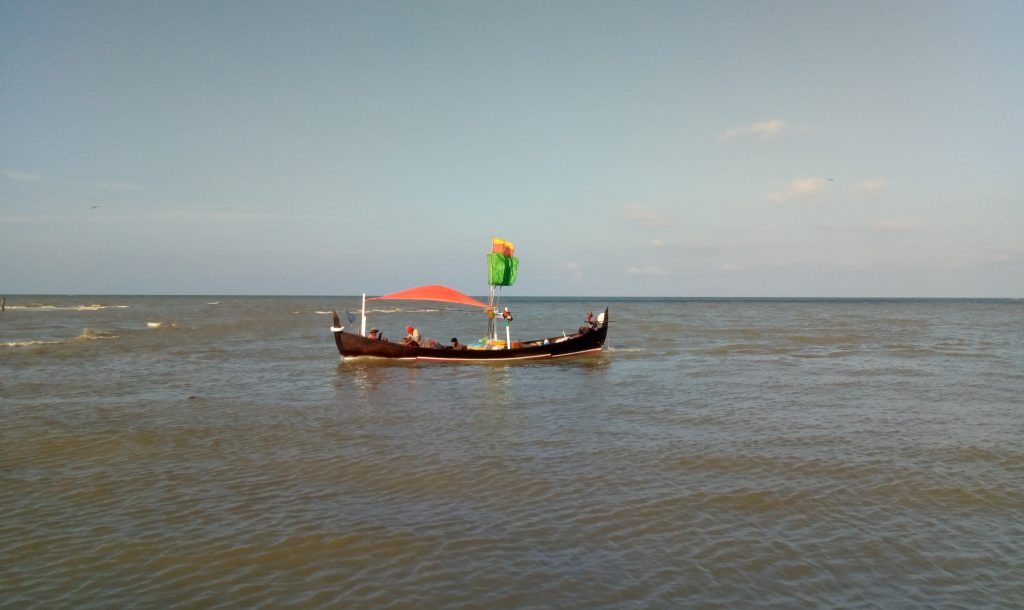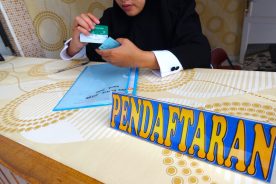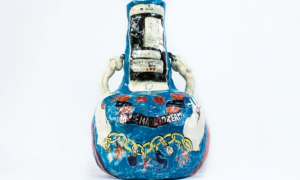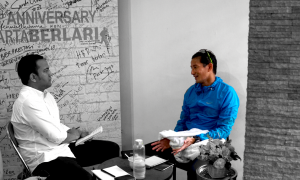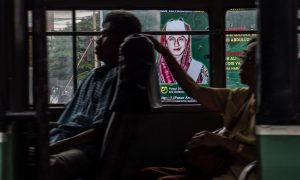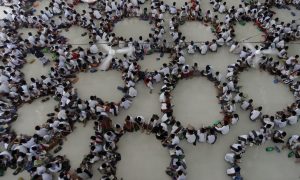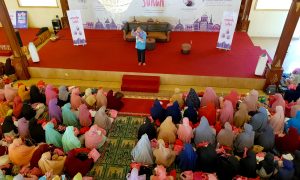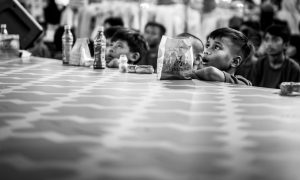“I’ve visited around a thousand communities, meeting people…[then] I encountered the story of Pak Najib, a fisher living in Pasir Putih Beach in Cilamaya, Karawang. He extracted sand to plant in mangrove forest. He was persecuted, criminalised [because of that].” So claimed Prabowo Subianto’s vice-presidential candidate Sandiaga Uno in the first debate of Indonesia’s presidential election on 17 February. Sandiaga’s statement soon created a political spat regarding whether Pak Najib the fisher was indeed unfairly persecuted. Others, such as President Joko Widodo (Jokowi)’s campaign team, questioned whether Sandi really did visit a thousand communities.
But what is certain is that fishers’ rights have received national attention in an unusually prominent forum in the televised election debate. If the Americans have Joe the Plumber, the personification of small business owners hurt by high tax rates, the Indonesians now have Najib the Fisher, the representation of unjustly persecuted wong cilik (little people).
For politicians, keeping fishing communities on side is serious business. The Central Statistics Agency (BPS) estimates that Indonesia is home to close to a million fishing households, with around 2.3 million fishers across the country. This might look minuscule compared to Indonesia’s total population, but this group represents a fifth of the total population of coastal communities. Fisherfolk have strong mobilisational potential, too, as shown in the recent waves of protests over fishing policies that have divided fisherfolk.
As April’s presidential and legislative elections approach, both camps have tried to woo support from fisherfolk. Recently, Jokowi met representatives from various fishers’ groups across Java who asked him to reconsider the recent decision to ban trawl fishing by his uncompromising fisheries and maritime affairs minister, Susi Pudjiastuti. Representing the opposition camp, Sandiaga has made numerous visits to fishing villages. He promised that should he and Prabowo get elected, they will fight hard for the prosperity and the ease of doing business for them.
In my visits to fishing communities in Central Java and North Sumatra during this election campaign, I have found that fishers’ rights, usually a niche issue, have become a part of the mainstream political discourse nationally and locally. To be sure, fishers’ political agency is still primarily exercised in gaining short-term concessions from a variety of political patrons, rather than uniting to press for policy change which benefits fishing communities as a whole. The mostly localised and ad hoc nature of fishers’ political organisation reflects the continuing fragmentation of Indonesian civil society, and the limited avenues that lower-class groups have in influencing politics. But the lesson of the 2019 campaign is that as long as the candidates think their votes matter, fishing communities can still put the policies affecting their livelihoods on the national political agenda.
Fishers’ rights as a political issue
In Jokowi’s first term, maritime and fisheries affairs have had an unprecedented prominence in the mainstream conversation on politics and policy in Indonesia. As a part of his developmentalist ambition, he envisions Indonesia as the next global maritime axis—essentially, a major hub for maritime economy and the exploration of marine and coastal resources. This, coupled with the colourful minister Susi’s nationalist policies such as cracking down on illegal fishing by foreign boats, have turned maritime issues and the lives of coastal and fishing communities into a staple of Indonesian media.
This rising popularity of maritime nationalism—a long-standing feature of Indonesian nationalism—involves a vague sense of solidarity with fisherfolk as providers of food who are often marginalised and left behind in development. Indeed, Susi claims that her war on illegal fishing has increased fishery production and thereby improved the livelihood of Indonesian fishers.
The Prabowo-Sandi campaign has responded accordingly with their own maritime and fishery policy proposals. As stated in their campaign and policy manifesto, they aim to reduce inequality between coastal and inland regions, increase the national budget for the fishery and maritime sectors, channel more credit schemes to fishers, promote infrastructure development as well as integrated economic centres for coastal and small island communities, and set up a market price for commodities that benefit both fishers and consumers. Needless to say, this looks like a lot to achieve. Lacking is the how to realise these campaign promises.
Policy-wise, the governance of maritime and fisheries affairs will most likely remain the same regardless of who is in power. Take the example of the controversy over Minsiter Susi’s ban on trawl fishing. While fishers in Indonesia’s outer islands welcomed the ban, the operators of Java-based trawlers criticised it. This led to a series of protests for and against the ban from both groups.
Eventually, responding to this controversy, Susi succumbed to the pressure by issuing a moratorium on the ban. Sandiaga Uno also made a move on this issue: while he has not taken any specific stance on the trawl fishing controversy, he promised to come up with a “win-win” solution for the fishers’ problems.
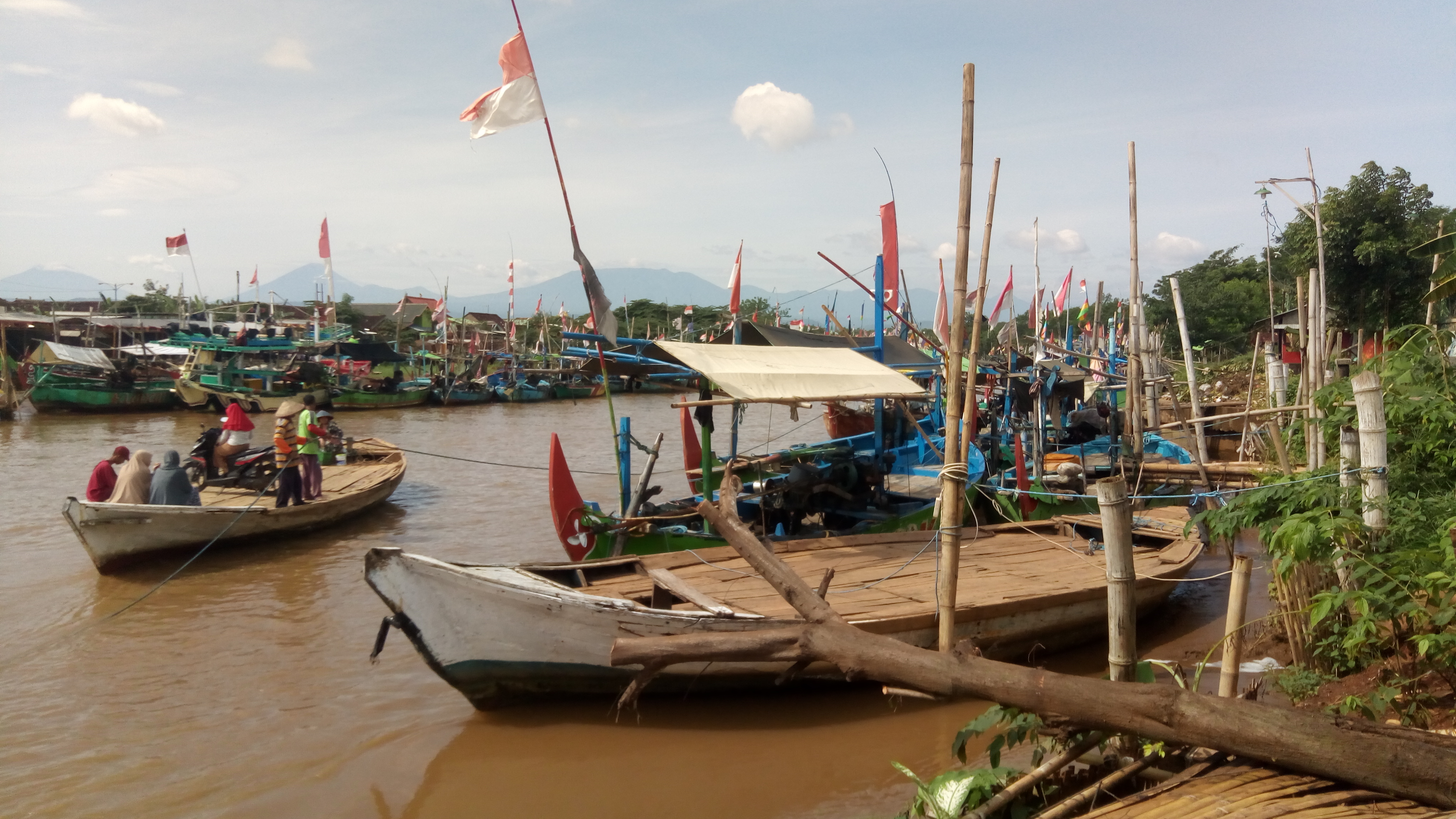
Entrance to Gempolsewu Village, Kendal, Central Java (Photo: author)
How fishers engage in politics
In Indonesia’s competitive electoral landscape, a voting bloc as vocal as fisherfolk can become a game-changer. From my visits to Kendal and Demak districts in Central Java and Serdang Bedagai district in North Sumatra, I found that there are multiple ways fishers influence politics, including brokering patronage, establishing alliances with supportive local candidates, or running directly as candidates in local elections.
What stands out, though, is that fishing communities are preoccupied in their political engagement with local politics and parliamentary candidates, seeking political representation and policy concessions at the district or provincial level. What we’re yet to see this election is fishing communities acting as a unified, coherent interest group capable of lobbying for policies that suit their interests.
A story from the Central Java village of Gempolsewu in Kendal district, illustrates the locally-focused nature of fishing communities’ political engagement. There I met a classic case of a local broker—the chairperson of a local fishers’ community business unit (KUB)—who serves as the middleman between his fellow neighbours and political candidates. Nashikin, the chairperson of this KUB, is the key figure empowered to maintain or cut ties between his community and vote-seeking politicians.
Nashikin’s community is represented in the national parliament by Fadhloli, from the pro-Jokowi Nasdem party. “I appreciated what he has done for us,” Nashikin said. For him, the MP is a rare breed of politician who visits his voters regularly and fights for them—mostly by lobbying the local district government to deliver state facilities and other resources for the fishers, such as fishing nets. “There are those who came and then forgot us, and we didn’t vote for them anymore,” he added. Their relationship with their MP is emblematic of the broader pattern of local electoral dynamics in Indonesia, where recruiting the right kind of local networks and brokers matters to politicians—and where voters value the ability of MPs to deliver concrete favours for their constituents.
Other fishing communities opt for a different strategy by establishing alliances with local candidates in exchange for fisher interests. Sugeng, the chairperson of another local fishers’ group in Kendal called Mina Agung Sejahtera, told me that “the pilpres (presidential election) doesn’t really matter. What matters more is to have some representation at the local level.”
For the upcoming local legislative elections, Sugeng is throwing his support behind Mifta Reza Noto Prayitno, an incumbent MP for the Central Java provincial parliament from Prabowo Subianto’s Gerindra party. Sugeng is encouraging other fishers to do the same. “This is because he supports our interests. He even used his own money to visit us,” he added. A similar view is also echoed by Masnu’ah, the leader of Puspita Bahari, a women’s organisation working in fishing communities in Demak district. She said, “I no longer judge the political parties that [the candidates] represent; now I assess the candidates directly.” These fishers’ groups support local candidates so that they can maintain their freedom of operation, and push their agendas on the local authorities further.
A few fishers take one step further, and stand themselves as candidates in local elections. Sulyati, a teacher from a fishing family in Gempolsewu, Kendal, tried her luck by standing for Kendal district’s local parliament back 2014, on the Gerindra ticket. She almost won a seat then, but she decided not to run this time. “I gave it a shot mostly because my friends encouraged me to run. Now I choose to focus on my community works,” she said. Another fisher-cum-community leader from Serdang Bedagai district in North Sumatra, Sutrisno, is also running for a seat in the district parliament, this time under the pro-Jokowi PKB party’s ticket. “I think it is important to have someone who can guard our interests at the local level,” he argued. In his view, mass pressure such as protests is necessary, but not enough.
Both of these newcomer politicians from fishing background are also well-connected to their electoral bases: Sulyati is a well-known community organiser and heads a village-level women’s group, Sekar Wilujeng, whereas Sutrisno is the chairperson of the North Sumatran Fishers’ Alliance (ANSU), a province-wide network of fishers’ organisations. Again, while this strategy is relatively new for the fishers, other lower-class constituencies such as peasant unions and trade unions have been utilising it in a number of local elections.
The “passive victim” victim of fishers portrayed by some politicians, then, doesn’t stack up. Indeed, the fishers now hold some good political cards. The question is, how would they play their hand?
By forming alliances with political patrons such as parliamentarians, one can immediately see the results. But contesting directly in local elections is more risky. A fisher candidate can lose, and demoralise his or her supporters. Nevertheless, Sulyati and Sutrisno are quite happy with their electoral experience. Sulyati lost, but that experience does not undermine her spirit, whereas Sutrisno is pretty confident with his prospects in 2019. He told me that he already has enough votes to win a seat, but as a fishers’ rights activist he also needs the support from the fishers too. I asked what he would do once he is elected. He said, “one of the things that I will fight for is to ensure that the fishers can receive all the subsidies, facilities, and programs (that they are entitled to).” Is he being too optimistic? We, and Sutrisno’s supporters, will only find out after the elections.
What fisheries tell us about political mobilisation
It is clear that this year’s presidential and legislative elections have influenced the way fishers and their allies advocate for their rights. They have different views and strategies regarding the elections. Some support the government, others support the opposition; many argue that national politics still matters, but for some others it is local contestation that shapes their lives. The strength of the fishers’ movement lies in their two weapons: mass mobilisation and voting. This means their power will be influential during either election times or occasional policy crises or deadlocks.
Consistent with academic studies on lower-class movements in Indonesia, it is the fishers’ mobilisational power and disruptive actions—from mass protests to stopping illegal trawl boats in the seas—that often trigger elites to concede to their demands, leading to a series of local policy changes and the deepening of a form of local democracy that, while limited, works for those who participate in it. The fishers’ groups that I encountered in the field have done a lot of meaningful work in their respective communities, from promoting women’s rights and economic empowerment to managing a community-based eco-tourism business in mangrove forests.
However, on the national level, the fisherfolk are organisationally fragmented. There are five fishers’ unions: four independent ones, namely the Association of Indonesian Traditional Fishers (KNTI), the Indonesian Fishers’ Union (SNI), the Federation of Fishers’ Unions across the Archipelago (FSNN), and the Sisterhood of Indonesian Fisher Women (PPNI) and a legacy union, the All-Indonesia Fishers’ Association (HNSI), which was formed as a corporatist organisation during the New Order era. At the local level, there are hundreds of fishers’ organisations across the country.
Who’ll pay for Indonesia’s national health insurance?
Politicians need to make some hard decisions to make the system financially sustainable.
Moreover, the fishers are also divided on policy: witness the responses to the trawl fishing controversy, indicating the regional diversity and differing interests among fishing communities. The extent to which they can offer a major alternative national fishing policy (say, limiting the expansion of industrialised fishing enterprises and big tourism businesses in coastal areas), or overcome the existing localised patronage networks, remains limited for now.
But regardless of their limitations, fishers’ political engagement is a good sign for Indonesia’s democracy because it represents the renewed participation of lower-class and marginalised groups in the post-authoritarian context. Such engagement matters, because it helps to reorient political debates towards the real issues affecting people’s livelihoods, moving away from the religious populism that obscures the actual problems—such as economic inequality and class tensions—that Indonesia must demand their politicians provide solutions to.
Acknowledgement: I would like to thank KIARA and community members of fishing villages in Kendal, Demak, and Serdang Bedagai for their help throughout my fieldwork.
 Facebook
Facebook  Twitter
Twitter  Soundcloud
Soundcloud  Youtube
Youtube  Rss
Rss 